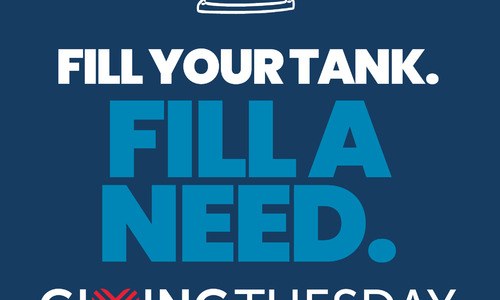Heating Oil Services and Delivery
Phillips Energy customers enjoy premium heating oil at competitive prices. What does this mean for you? A more efficient heating system and greater energy savings.
Heating Oil Delivery Options
We offer both automatic delivery and will-call delivery. With automatic delivery, you are ensured of a full tank of oil at all times and in all temperatures. Automatic delivery customers are also eligible for:
- enrollment in pricing protection programs
Will-call delivery is available for those customers who prefer to watch their tank gauge and call for deliveries. Will-call customers are encouraged to provide three to five days notices when the oil tank is 30% full in order for the Phillips Energy team to schedule delivery into an already scheduled route for customers enrolled in our automatic delivery program. While we are occasionally able to deliver fuel sooner to our will-call customers, this is not always the case due to our trucks having been pre-routed to meet an ongoing demand. Ask us about automatic delivery for qualified customers and emergency after hours service.
Heating Oil FAQs
Q. What happens when I start service?
A. You may choose either automatic delivery or will-call delivery.
Q. What does Automatic Delivery mean?
A. You can rely on Phillips Energy to deliver your fuel oil when you need it. Our computer software utilizes a "Degree Day" system that forecasts a delivery when the tank is approximately ¼ full.
Q. What does Will-Call delivery mean?
A. It is your responsibility to contact us to request your delivery. We have a minimum 100-gallon delivery and kindly request customers provide five days notices when the oil tank is 30% full in order for the Phillips Energy team to schedule delivery into an already scheduled route for customers enrolled in our automatic delivery program. While we are occasionally able to deliver fuel sooner to our will-call customers, this is not always the case due to our trucks having been pre-routed to meet an ongoing demand. Ask us about automatic delivery for qualified customers and emergency after hours service.
Q. What do I do if I run out of oil?
A. Phillips Energy recommends automatic delivery to prevent you from running out of oil. If you are a will-call customer, contact us immediately. If you require a furnace inspection please note that you may be charged for this service. We ask that you make every effort to contact us for a delivery when your tank is approximately ¼ full.
Q. How do I get my invoices?
A. Our oil delivery drivers will leave a copy of the delivery ticket. We also mail monthly statements, or you can request to have your invoice emailed to you.
Q. What are my payment options?
A. Phillips Energy's convenient payment options include price protection and even monthly payment programs. Please call or contact us for details. We also offer online bill payment.
Today's Oilheat
Whether you call it "Oilheat," "heating oil" or "fuel oil," one thing's for sure: it's the perfect fuel for our Upper Tidewater, Middle Peninsula friends and neighbors.
Oilheat is safe
- It will not burn in a liquid state. In order to light heating oil on fire, you must heat it above 140 degrees, the temperature at which it begins to vaporize.
- There are visible warnings if there is a malfunction. With home heating oil systems, carbon monoxide leaks rarely happen without warning. If an Oilheat system should malfunction, it will release smoke or soot as a visible warning; these serve as early indicators that something is wrong, long before dangerous levels of carbon monoxide can be released into the air.
- It is non-explosive. A match dropped into heating oil will go out as if it were dropped into water.
Oilheat is "green"
- It burns cleanly. Today's Oilheat burns 95% cleaner than in 1970. Since it burns so cleanly, it comes well within the air pollution standards set by the Environmental Protection Agency. Low-sulfur products and biofuels, such as those made from soybeans, will further reduce the already near-zero emissions.
- It is kind to the environment. Residential heating oil equipment creates such a negligible amount of emissions that heating oil is not even regulated by the Federal Clean Air Act.
Oilheat is dependable
- It offers dependable and safe storage. With Oilheat, you benefit from having your fuel source safely stored in a tank on your property, with no need to worry about the weather or disruptions in the fuel supply.
- There will always be a plentiful supply. Even during the coldest winter months, there's more than enough Oilheat for everyone. In fact, the United States has a Strategic Petroleum Reserve with a capacity of 727 million barrels — the world's largest emergency oil stockpile — in addition to a one-million-barrel heating oil reserve. There are over 50 oil producing countries, and the U.S. is not dependent on any one country or region for its supply.
- You can rely on us! Phillips Energy offers dependable, courteous personalized service — with around-the-clock emergency response and the personal attention every customer deserves.
Oilheat is economical
- The price is right. On a BTU-for-BTU basis, Oilheat provides a better overall value than natural gas.
Oilheat is efficient
- Oilheat is hot! Of all heating fuels, Oilheat has the hottest flame - for satisfying warmth, and rapid space and hot water heating.
- Oilheat systems are super-efficient! Thanks to major advancements being made in Oilheat burner technology, some Oilheat systems now boast efficiency ratings of over 95%! Modern Oilheat equipment actually burns less fuel. The average annual fuel consumption in 1973 was 1,294 gallons; and now it is only 833 gallons — that's 35% less fuel.
For more information on the many benefits of Oilheat, please visit Oilheat America.
